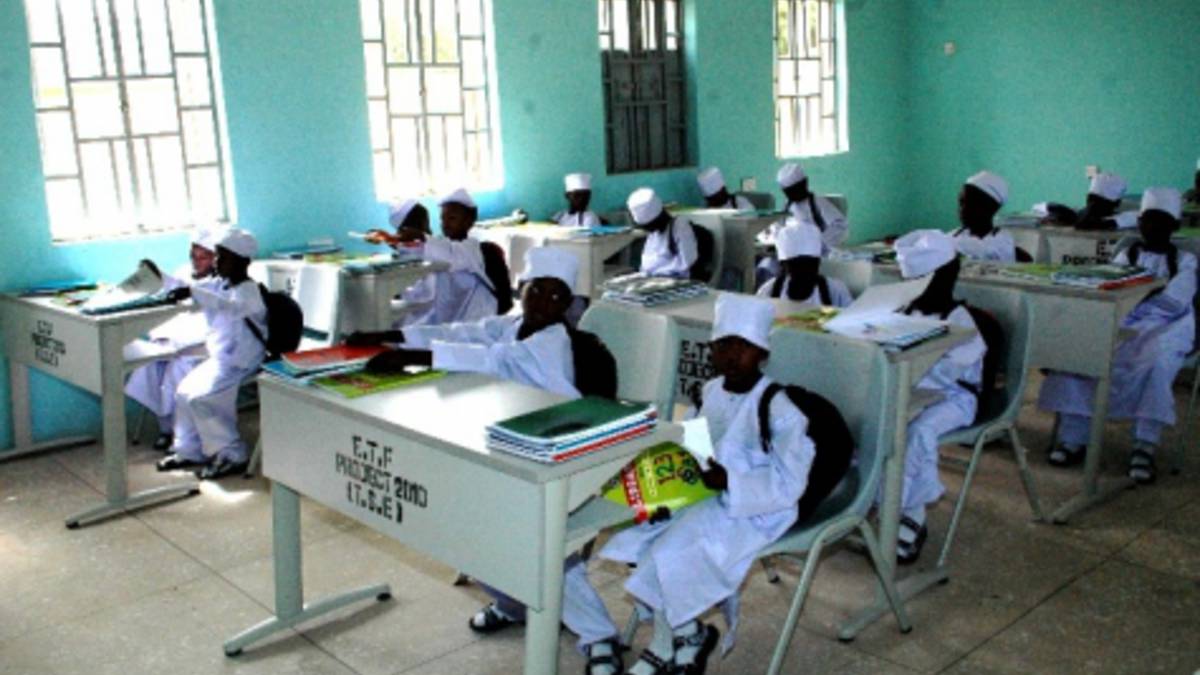In northern Nigeria, the Makarantan Allo or Almajiri education system has faced criticism for its outdated practices and vulnerability to children involved.
The primary aim of the Almajiri education system is to provide Qur’anic education and familiarise pupils with the teachings of the Qur’an. The Almajiri system relies on the voluntary decision of parents and guardians to send their male children to traditional Islamic schools. It involves the active participation of three key players: the state government, parents and guardians, and the host community where the Almajiri schools are located. These players have significant roles in shaping the system and working together to address its challenges.
Parents and guardians send their children and wards to these schools in various villages and towns in northern Nigeria, hoping they will gain knowledge of Islamic principles and potentially become Islamic scholars or leaders in their communities. It is worth noting that while the Darika sect is associated with some of the Almajiri schools, some other Islamic sects and schools follow similar practices. The specific sects involved may vary depending on the region and local traditions.
The key problem with the Almajiri system is the exploitation and abuse of Almajiri children. In the predominantly northern regions of Nigeria, the Almajiri education system has led to a distressing situation where children are taken away from their homes and left to wander the streets in neighbouring villages or towns through their formative years. These children account for a significant part of the reported 20 million out-of-school children. They are used as additional labour in their communities and are exposed to hazardous conditions, including being sent to the streets to seek work or beg. These are concerning issues. It goes against legal protections and international standards and violates their rights. It risks their education, health, well-being and safety, exposing them to danger in many ways.
Plight of Jigawa civil servants, a case study for governor-elect
FCTA to implement extant policies on tree planting
This reality calls for collective responsibility, particularly for state governors, to address these concerns and find more effective solutions that prioritise the well-being and education of these vulnerable children. To effectively eradicate the Almajiri system, collaboration among all northern governors is crucial. They must provide the necessary policy, regulatory framework, and funding.
The Almajiri system’s cultural and religious significance must be considered when implementing reforms or interventions. It is crucial to adopt approaches that respect religious values while promoting the well-being, educational progress, and societal integration of Almajiri children. Balancing the preservation of religious teachings with providing comprehensive education and enhanced socio-economic conditions for children presents a significant challenge.
Prioritising community engagement and dialogue, involving parents, guardians, community leaders, and religious institutions, is also vital in shaping solutions and addressing the challenges Almajiri children face. This requires finding an economic equilibrium that accounts for religious and educational objectives, similar to balancing supply and demand in a market.
The Jonathan administration reportedly spent around N15 billion to construct 157 Tsangaya model schools in northern states. The initiative sought to bridge the gap between traditional Islamic and formal education, empowering Almajiri children with the skills and knowledge for a brighter future. However, these schools remain in poor condition due to inadequate maintenance, poor state government funding, and limited acceptance by their intended beneficiaries. It has been eight years since Jonathan left, but the problem remains.
The new government can strive to address this problem. Parents and guardians never sought advice from the government when deciding to take their children or wards across state borders. Understanding the motivations and perspectives of parents and guardians is crucial for effectively addressing the issue of Almajiri schools.
Adopting a bottom-up approach to gain insights into why these children are sent to such schools will be more effective. Factors such as economic constraints—making it difficult to care for their children or wards, lack of access to quality education, and limited awareness of alternative options may play a role.
Parents and guardians often view the Almajiri practice as a natural bedfellow—an inherent part of their cultural and religious traditions. From their perspective, it is deeply rooted in their beliefs and seen as a way to pass down religious teachings to the next generation. Therefore, it is important to engage with parents and guardians in a respectful and empathetic manner, aiming to foster dialogue and understanding.
By providing alternative perspectives, raising awareness about the challenges faced by Almajiri children, and highlighting the benefits of comprehensive education, we can work towards gradually shifting this perception and encouraging parents and guardians to consider alternative approaches that prioritise their children’s well-being and future opportunities.
Since the Almajiri schools primarily focus on Quranic education, involving teachers from the Darika Islamic sect in the bottom-up decision-making processes is crucial. The government hardly involve these groups for unknown reasons. More often than not, leaders from other sects are involved in designing policies for them, which becomes a futile effort.
The insights and perspectives of these key players are as important as those of the parents, guardians and the government. It can provide valuable contributions to discussions surrounding the future of these schools. Engaging with the Darika teachers and incorporating their expertise can help develop more comprehensive and culturally sensitive approaches that balance religious education with broader educational and social development.
As we adjust to this new regime of political leaders, it is crucial to approach this challenge comprehensively, without ignoring our cultural values, while prioritising the welfare and education of the children. Adopting such a delicate approach can facilitate a transition for Almajiri children away from the streets and towards a future filled with better opportunities.

 Join Daily Trust WhatsApp Community For Quick Access To News and Happenings Around You.
Join Daily Trust WhatsApp Community For Quick Access To News and Happenings Around You.


